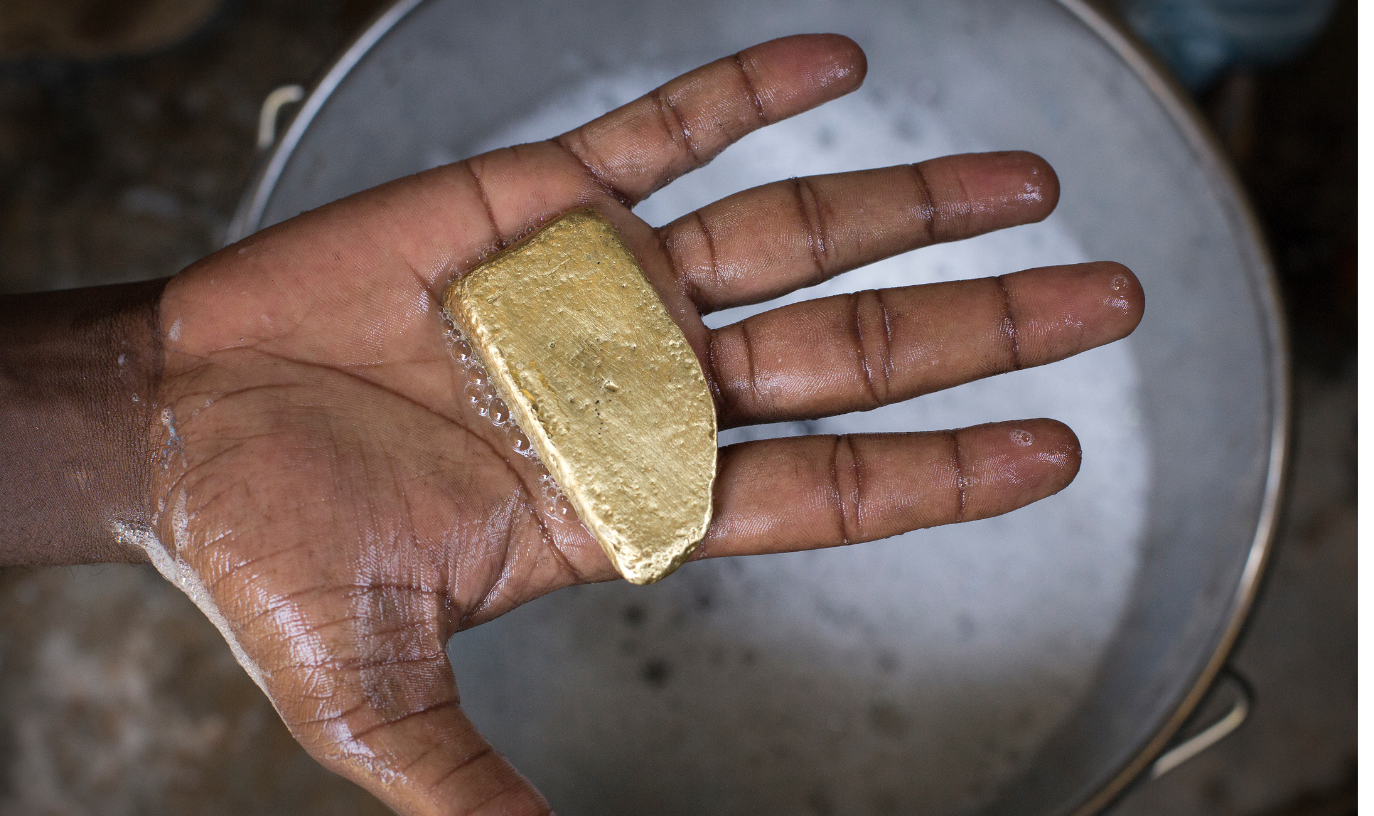Artisanal and small-scale gold mining (ASM) plays a significant role in Côte d’Ivoire, contributing to livelihoods in many communities. The sector has seen major growth in recent years, with artisanal gold mining in 24 of the country’s 31 regions. The government estimates 500,000 artisanal gold miners are working across the country, largely operating outside the formal legal framework. This not only poses significant challenges for the authorities to regulate the sector but also leads supply chain actors to bypass crucial due diligence practices that could help promote more responsible mining practices.
The Role of Traders
Traders in the ASM ecosystem of Côte d’Ivoire are integral to the sector’s operation, yet they face a complex landscape. Most of the artisanal gold mined in the country is easily channeled through illegal routes, with a significant portion exiting through neighboring countries, such as Burkina Faso and Mali, to reach international markets.
This underscores a substantial challenge: local legal traders struggle to compete in the country’s gold market, as informal channels often offer more attractive purchase prices. This pushes many traders toward informal or illegal trading methods.
Yet, we’ve seen how in mining communities, traders – formal and Informal – do much more than simply purchase gold. They provide crucial financing and the equipment necessary for mining operations, and manage the substantial risks associated with transporting high-value commodities. Their role extends beyond mere middlemen; they are key to the survival and prosperity of ASM communities, often providing additional essential goods and services that range from fuel to daily necessities, like cooking oil and clothing.
However, operating within legal constraints is hindered by several significant barriers. The administrative processes for engaging in legal trade are daunting, with a fiscal framework that often makes legal trade less competitive and at times uneconomical. Corruption further complicates these challenges, as it permeates the supply chain at multiple levels—production, holding, marketing, transport, and export—making it difficult for traders to operate transparently and legally. Given these conditions, many traders rely on informal financing sources, which ties them to less formal and accountable trading methods. This situation not only affects the traders’ ability to operate within legal frameworks but also impacts their role in fostering sustainable practices within the community.
The Importance of Including Traders in Responsible Sourcing
The involvement of traders in responsible sourcing initiatives is crucial for the success of sustainable practices within the ASM gold sector in Côte d’Ivoire. Given that ASM gold often serves as a financial instrument, lessons from IMPACT’s Just Gold project in the Democratic Republic of Congo, for instance, indicate that informal local traders are known to offer prices for gold that are near the London Bullion Market Association (LBMA) spot price. This high pricing could be due to manipulated scales or weights or possibly as a strategy for traders to incur short-term losses to secure a larger share of the market.
Without integrating these traders into responsible sourcing frameworks, formal supply chain initiatives risk being undermined by the pervasive influence of informal trading networks, thereby jeopardizing the effectiveness of sustainability efforts. By integrating traders into responsible sourcing frameworks, it is possible to bridge the gap between informal operations and formal market demands, enhancing the overall efficacy and integrity of the supply chain.
IMPACT’s experience with the Just Gold project in both Côte d’Ivoire and the Democratic Republic of Congo underscores the critical need for integrating traders into efforts to formalize artisanal gold supply chains—and potential barriers. The project demonstrated that working within the existing structures of the ASM sector and directly engaging with the actors already embedded within these systems is likely more sustainable than attempting to create completely new supply chain relationships.
By acknowledging these challenges and focusing on what motivates traders to participate in due diligence, we can better tailor initiatives to align with their needs and realities. The Scaling Up project in Côte d’Ivoire is now testing the inclusion of traders. This project builds on Just Gold’s foundation, enhancing market transparency and legitimacy for traders, thereby supporting more effective community development and creating supply chains that adhere to both national and international standards.
Recognizing the pivotal role of traders in the artisanal gold supply chain, IMPACT and Solidaridad, through the Scaling Up project, are engaging traders to explore what truly motivates them, including:
- Are traders motivated to sell into formal, legal international supply chains?
- How willing are they to support miners in meeting the expectations of international buyers around due diligence and responsible production?
To foster the involvement of traders in responsible sourcing, it is essential to offer clear incentives that align with their operational realities and economic interests. Part of this requires exploring each of the steps required to carry out due diligence and calculating the costs and benefits to traders. We can then explore how to motivate traders and the miners they work with to comply with, for instance, the OECD Due Diligence Guidance. Project learnings will be shared in 2025.
The Scaling Up project in Cote d’Ivoire is funded by the European Partnership for Responsible Minerals (EPRM) and implemented by IMPACT.

